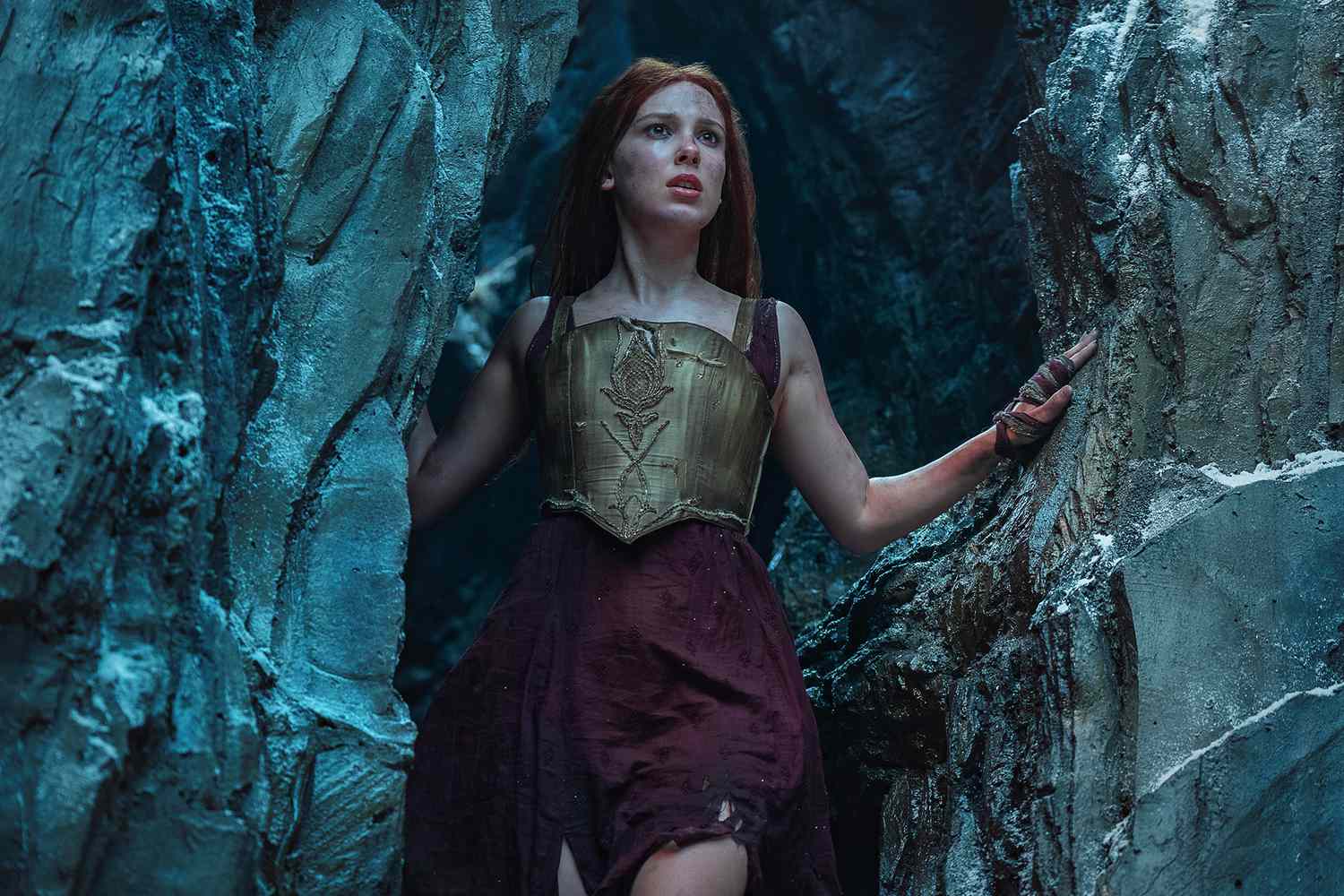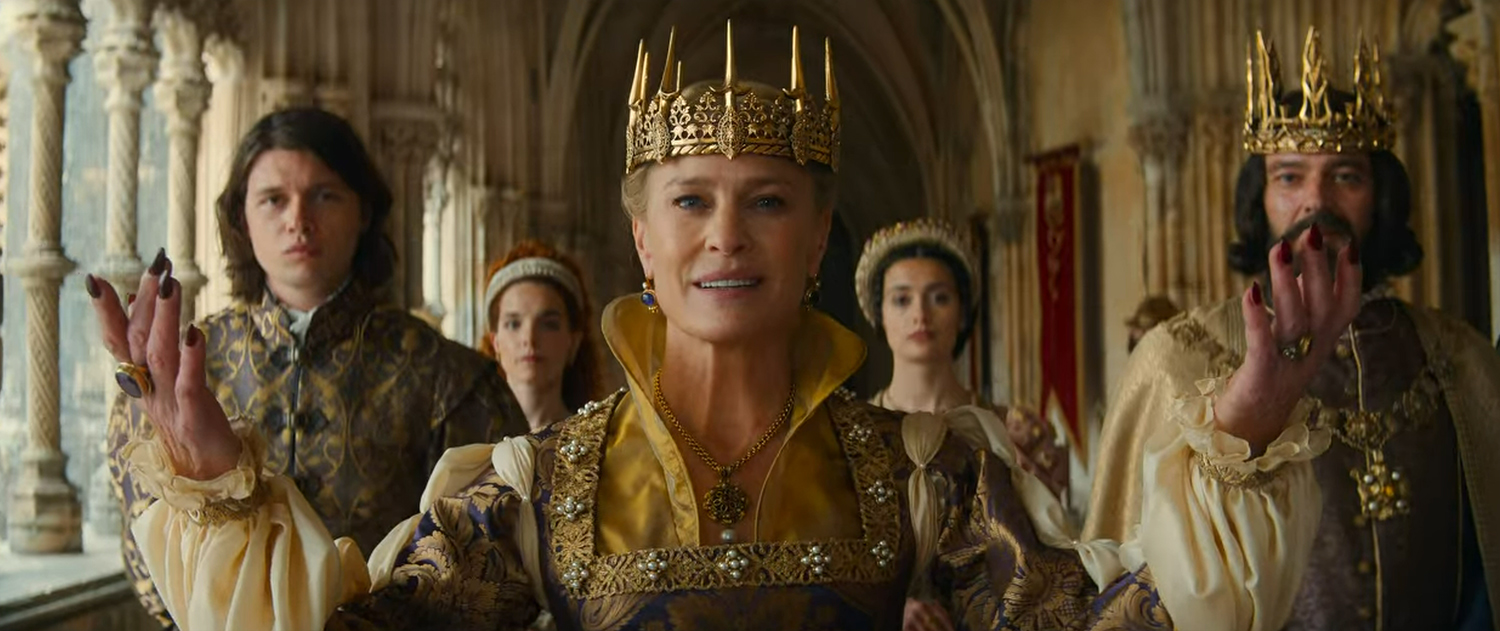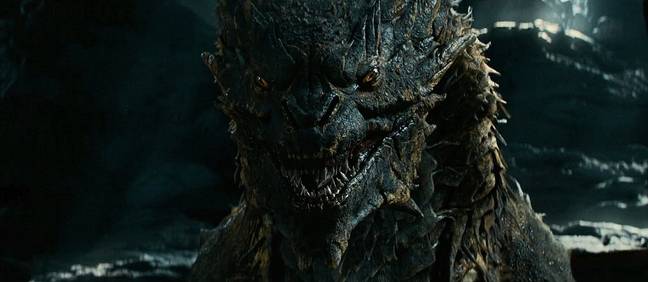The word “damsel” has fallen on hard times, because it is most often followed by the words “in distress,” reminding us of a time when handsome princes saving endangered princesses was an extremely commonplace part of popular movies. Nowadays, if you find even one prince saving even one princess in even one movie, you will recoil in shock and horror. In a mostly positive social development, we have learnt that a man saving a woman sets back the progress of women in popular consciousness, and any screenwriter who tries to get this trope into a script would likely be laughed out of the industry.
So while Juan Carlos Fresnadillo’s new Netflix film Damsel seems primed to give us yet another lesson on gender relations, especially with its opening voiceover by star Millie Bobby Brown, the film itself develops in ways that are pleasingly more three-dimensional than that sort of simplistic lecturing. Yes Brown’s main character, Elodie, has plenty of agency and heroic qualities, while her male counterparts do not. But Brown is such a good actress and compelling presence that she doesn’t need to make this character an ass-kicking badass. In fact, from the number of times Brown cries out in real agony from a gory injury, we are reminded that women can be strong and still be real(ish) people. The distress is palpable.
The sense of reality is relative in Damsel, which takes place in the milieu where damsels in distress once thrived: an age of kingdoms and knights and the dragons who threaten the both of them. It’s actually just a single dragon here, voiced in the husky purr of Shoreh Aghdashloo, who has an uneasy peace with this particular kingdom that is reliant on regular sacrifices of the kingdom’s daughters. This is part of an agreement resulting from an event that occurred centuries in the past, when a former king unceremoniously destroyed the dragon’s three infant offspring, who had only just hatched, and who represented the dragon’s last opportunity to carry on her own bloodline. (And so we can see, from this setup, that she isn’t going to be the monolithic monster she would have once been, either.)
Of course, the kingdom isn’t interested in sacrificing its actual daughters. So the system handed down to the current queen, Isabelle (Robin Wright), is that she finds young girls to marry her son, Henry (Nick Robinson), among the lands her kingdom oversees. There’s an exchange of gold and favours that sweetens the deal with the father, in this case Lord Bayford (Ray Winstone), whose village is on the verge of destitution. It’s unclear exactly how much he knows about what will happen to Elodie once he gives over her hand in marriage, but she certainly doesn’t know that she’s about to be the centre of a ritual that involves slicing open her palm and allowing her blood to intermingle with Henry’s. What strikes her as a backward but survivable ceremony is actually giving her the whiff of royal blood, which the dragon must smell in order to complete her end of the sacrifice in the dank pit at the bottom of a mountain.
There are plenty of standard components in Damsel, but the production has found an actress who can make these components feel somewhat fresh. The impossibly charismatic star of Stranger Things continues her relationship with Netflix in a manner that requires different things from her than the plucky heroine of the Enola Holmes series. This material is darker and more in sync with Stranger Things, and Brown is equal to it. The fall into this pit, slowed only by the gnarled branches that allow her to reach the ground in one piece, has left her with suppurating wounds and a stew of rage and fear. Brown has all the gifts in her repertoire to give her character a sense of real struggle and probable defeat, even if the convenient appearance of magical glow worms is going to prevent her injuries from becoming life threatening.
There’s one other way Damsel twists the components of your standard fairytale dragon epic, and that’s with the character of Elodie’s stepmother. She’s played by the great Angela Bassett, which is probably the surest sign that she’s not another antiquated term from these movies that has fallen out of favour: wicked. The wicked stepmother has gotten an even worse rap in the past than the handsome prince is getting now, and Bassett’s character goes a long way toward redeeming some of those assumptions. (Wright’s queen doesn’t make out so well, but you have to have one truly evil character I suppose.)
At its core, though, Damsel doesn’t have a very different project in mind than the many other movies that try to flip our retrograde viewpoints about which gender is capable of what. It’s just a creative example of that movie, with enough gore to make it aspirational for the young viewers seeking it out. Brown’s real-seeming injuries are not the only indicator that we are in an adult world. The dragon burns and crushes overmatched opponents in a way that leaves only some of this to the imagination. That aspect of the film makes it clear why a director like Fresnadillo might have been considered, as he made 28 Weeks Later, the sequel to Danny Boyle’s zombie movie 28 Days Later.
If Damsel is getting a slightly higher rating from me than it possibly deserves, that’s probably due to Brown, who is on screen almost throughout this film. Great movie stars have the power to take middling material and thrust it upward through sheer force of will, and Millie Bobby Brown is a great movie star. She manages to be both in distress and still a positive role model for young girls.
Damsel is currently streaming on Netflix.


